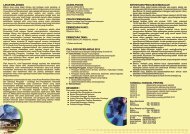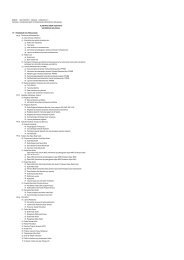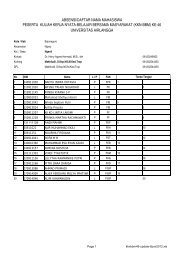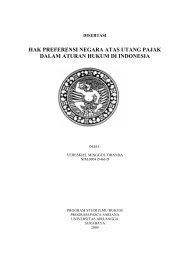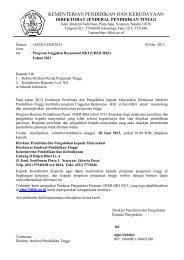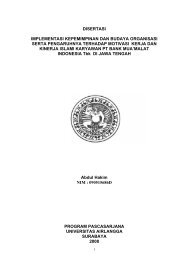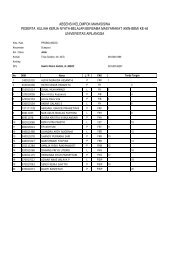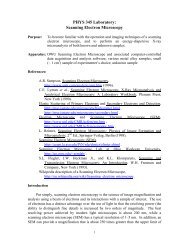Nietzsche's Naturalistic Ethics - UNAIR | E-Book Collection
Nietzsche's Naturalistic Ethics - UNAIR | E-Book Collection
Nietzsche's Naturalistic Ethics - UNAIR | E-Book Collection
Create successful ePaper yourself
Turn your PDF publications into a flip-book with our unique Google optimized e-Paper software.
2.4 On this proposal, the person of ressentiment (i.e., a person whose mind is characterized by thisstate) is left damaged by the process of internalization and socialization in a peculiar way. She isunable to develop an inner life absorbing pain, anger, and resentment that stem from the oppressionof instincts. Her inner life is in unhealthy ways tied up with behavior belonging to the preinternalizationperiod: neither does she live under circumstances in which she can discharge herinstincts, nor has she managed to develop an independent and unified inner life that integrates orabsorbs conflicting instincts and thus eliminates or at least reduces anger and resentment. The personof ressentiment may be unable to come to terms with the influences of his environment and thememories of his past, or be unable to overcome the inner turmoil of instincts and inclinations andrest in himself. Or he may be unable to close himself off sufficiently against such influences to“become whole.” Instead the person of ressentiment lives an excessively retrospective and otherdirectedlife. In a nutshell, the person of ressentiment is maladjusted to civilization: she hasdeveloped the self-conscious mind that accompanied civilization, but she maintained patterns ofbehavior that were healthy only prior to the process of civilization. Not everybody is like that.Illuminating descriptions of individuals whose characters are not dominated by ressentiment appearin Ecce Homo, in the Twilight, and, early on, in the Fourth Untimely Meditation (Richard Wagnerin Bayreuth). Drawing on the Ecce Homo passage, I refer to the character described by way ofcontrast with the person of ressentiment as the person who turned out well -- der Wohlgeratene. InEcce Homo Nietzsche describes himself, whereas in the Twilight he talks about Goethe and in theMeditation about Wagner. We will return to these passages, but for now, our purpose is merely toillustrate the state of mind of ressentiment by way of contrast. The Wagner passage is closest inspirit to Nietzsche’s physiological interests.What is it, fundamentally, that allows us to recognize who has turned out well? That a well-turned-out person13




